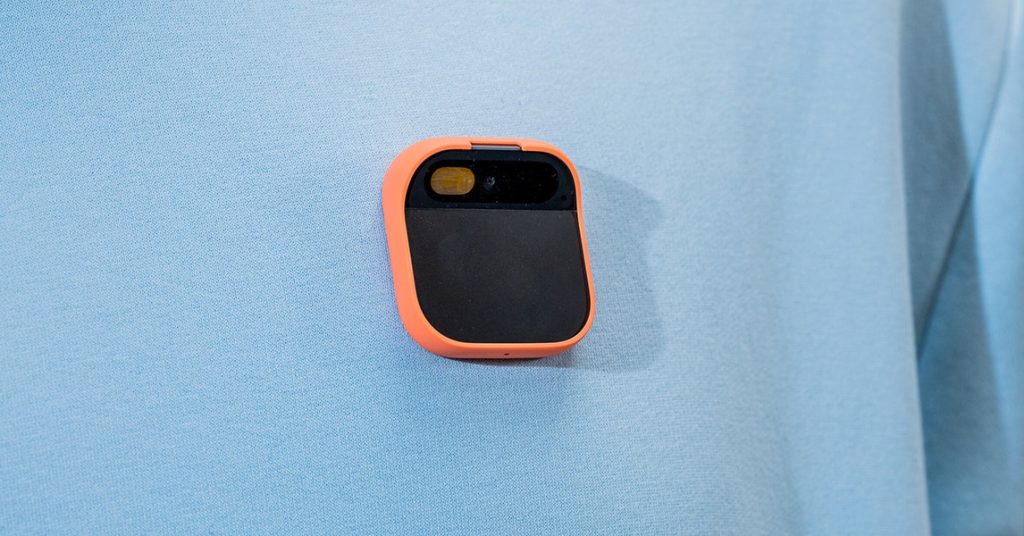AI Hardware Startups Struggle to Find Success
The road to success for AI hardware startups is proving to be a bumpy one. Despite years of development and grand visions, many of these companies are facing significant challenges in bringing their products to market and gaining traction with consumers.
Humane’s Ai Pin Fails to Impress
One notable example is Humane, which recently launched its Ai Pin, a tiny wearable device that promised to revolutionize the way we interact with AI. The Ai Pin was supposed to eliminate the need for juggling multiple apps by using its operating system to “search for the right AI at the right moment.” It claimed to offer a range of features, from playing music and translating languages to providing nutritional information about food.
However, the Ai Pin has been met with a lukewarm reception. Julian Chokkattu from WIRED described the device as “half-baked,” while some users have even compared it to a “cheap toy.”
Bigger tech companies are able to have five shots on a hardware product whereas a startup may only have one. The odds of one of these smaller companies raising a future fundraising round after releasing an expensive flop are not good odds.
Jacob Andreou, an investor at Greylock with experience growing products at Snap, highlights the challenges faced by startups in the hardware space. Unlike larger tech companies that can afford multiple attempts at a product, startups often have only one shot to get it right.
Startups Respond to Criticism
In response to the criticism, Humane’s CEO and cofounder, Bethany Bongiorno, acknowledged the difficulties in creating a first-generation product and stated that the company has issued “stability updates” to improve the Ai Pin. She emphasized that the Ai Pin and its operating system, Cosmos, are just the beginning of the “ambient computing” story.
Similarly, Rabbit, another AI hardware startup, has faced challenges with its R1 device. Founder and CEO Jesse Lyu stated that the company is working to quickly improve the product based on user feedback and has already released three software updates.
The AI Gadget Scramble
The current rush to incorporate AI into hardware devices is reminiscent of the 2010s era of consumer wearables and Kickstarter-funded gadgets. During that time, newly available technology made it easier for startups to build products, leading to a flood of devices like Google Glass, Pebble Watch, Oculus Rift, and the Ouya video game console.
However, most of these novel gadgets either flopped or were eventually absorbed by giant tech companies. Pebble’s technology ended up at Google through a Fitbit acquisition, while Oculus was acquired early on to seed Facebook‘s VR plans. Amazon created the smart speaker category with Alexa, and Apple‘s smartwatch became the dominant player in the market.
The Path to Success for AI Hardware Startups
For AI hardware startups to succeed in the current landscape, experts suggest focusing on brand reputation and keeping things simple. M.G. Siegler, a general partner at GV, advises against making grandiose claims and instead recommends starting with a simple product that invokes a single AI model and has a clear purpose.
Andreou believes that startups may turn to original device manufacturers to offload some of the manufacturing costs and keep expenses low. He also predicts that hardware startups will increasingly adopt subscription models to boost revenue.
Another potential opportunity for startups with limited capital is to leverage smaller, more efficient AI models that can run directly on devices and require less computational power. However, the question remains: what kind of hardware should they build?
As AI hardware startups navigate this challenging landscape, it remains to be seen which companies will emerge as the winners and which will join the ranks of the many failed gadgets of the past.

2 Comments
AI makes coding a breeze, but good luck getting it to run smoothly on your old laptop!
Hardware’s complexity just highlights how we’re still in the infancy of truly understanding AI’s demands!